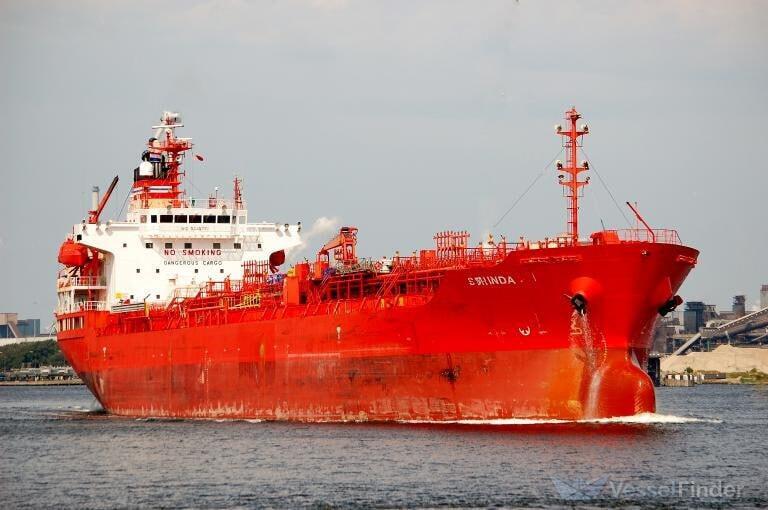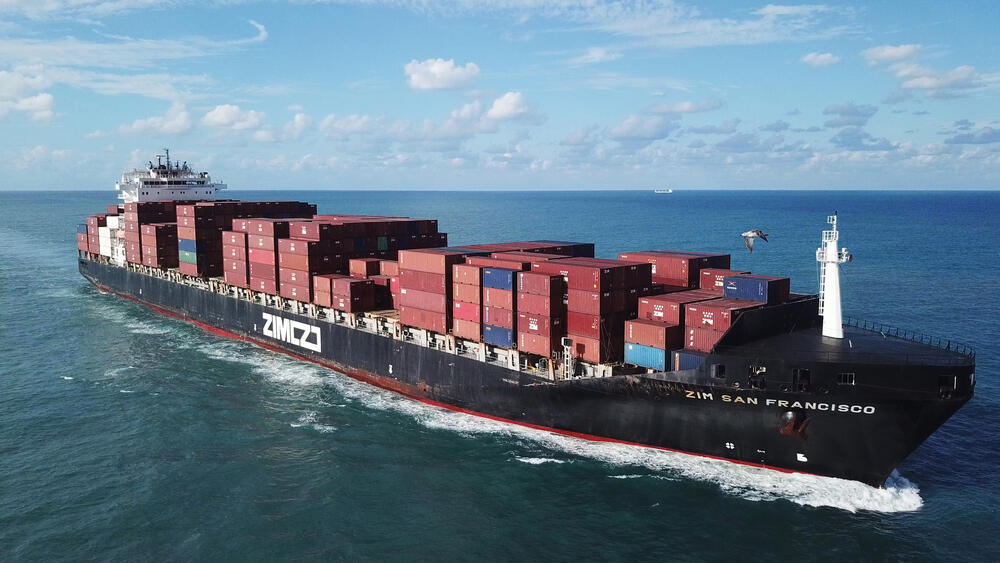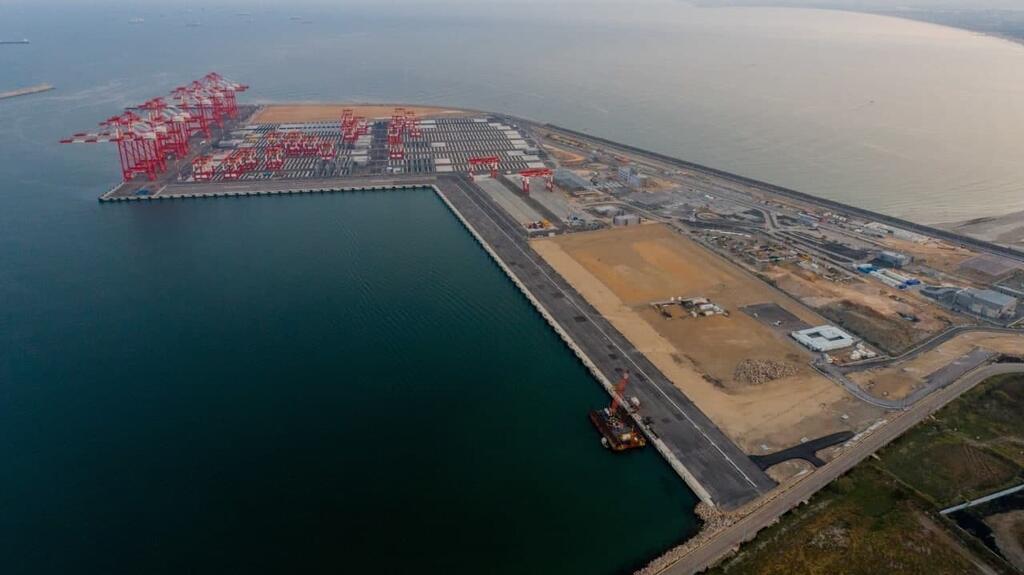Getting your Trinity Audio player ready...
When the Haifa Port was inaugurated in August 2021, the highlight of the event was the arrival of a giant vessel belonging to Chinese government-owned shipping giant COSCO to Israel.
Read more:
This marked the first docking of a cargo ship at the port operated under a franchise by Shanghai International Port Group (SIPG), one of whose shareholders is also COSCO, itself owned by the same government.
The port was established to accommodate giant ships, thereby becoming a "hub" to allow them to offload containers onto smaller vessels, which in turn would distribute them to other ports abroad.
In the beginning, quite predictably, COSCO shifted its operations in Israel to the new port. Consequently, the port's activity surged in a short time, reaching a market share of 88% of the country's transshipment sector by the end of 2022 (transshipment: unloading containers from one ship and loading them onto another ship bound for a new destination).
However, in an ironic twist, the entity that dealt a significant blow to the port's operations was none other than COSCO itself by halting the transfer of transshipment cargo through the Chinese-owned port following the outbreak of the war in October. As a result, the volume of container transshipment at the port decreased from an average of 13,000 per month to just about 4,200, and in November it sharply dropped to around 2,800 containers.
COSCO announced last week that it would cease its operations in Israel, making it the first and only company to sever its trade relations with the ports in Israel. Unlike other giants that have announced the suspension of their activities through the Red Sea but continue to maintain trade relations with Israeli ports in the Mediterranean, COSCO, the Chinese company, has completely cut ties with Israel. This decision seems not to be related to the Houthi threat but appears more like a principal decision by the Chinese to no longer operate with ports in Israel.
The beginning of the Gulf port's activity was characterized by a strong tailwind that it received from Cosco. Already in the second quarter of 2022, the Chinese port loaded about 9.6 thousand cargo containers compared to 7.4 thousand containers in the competing Haifa port. A short time after that, Chinese control tightened until reaching a market share of 88%. Before long, the loading of containers at the old Haifa port was already negligible, with only about 1,500 containers.
The phenomenal numbers of the volume of containers loaded at the Gulf port were affected in the third quarter of 2022 by Israel's Zim, which, according to estimates, is responsible for about 40% of the volume of the activity and is considered its main customer. Two other main clients of the port are the Swiss shipping giant MSC and the Danish Maersk.
Zim's move to the Gulf port expanded the volume of containers loaded at the port in the first quarter of 2023. In the same quarter, the Gulf port loaded 26.3 thousand containers, out of almost 30 thousand container loadings done during that period in all the ports in Israel. In the same quarter, Haifa port did about 2,750 container loadings. In the second quarter of last year, the Gulf port loaded almost 30,000 containers, about 80% of all containers in Israel during that period. At the time, the old port of Haifa loaded only about 340 containers.
The Gulf port also ended the third quarter of 2023 with a large amount of containers: about 27 thousand. When October came, Hamas attacked the Gaza border towns, massacred masses of Israeli civilians and kidnapped hundreds more into Gaza. During the already complicated picture, the Houthi rebels in Yemen expressed solidarity with Hamas and began attacking ships destined for Israel in the Bab al-Mandab strait. The strait which connects the Arabian Sea with the Red Sea and is considered critical for ships traveling from the East to Europe.
The data of the Israel Port Authority for October and November indicate a sharp drop in loadings in Israel's ports in general, and it is particularly noticeable in the Chinese port. In October, the Gulf port loaded only about 4,260 cargo containers, and their number dropped to about 2,900 containers in November. In each of these months, the port of Haifa loaded less than 200 containers. In those months, the old port in the south, the Port of Ashdod, also felt a sharp drop in container loading: from about 530 containers that were loaded there in the third quarter of 2023, their number dropped to 180 in October and 164 in November.
A similar process took place at HCT's southern port, and the number dropped from about 3,600 containers in the third quarter of the year to 1,550 in October and zero in November. The Houthi threat forced the shipping companies to reconsider their route. Many companies decided to circle the African continent and thus extend the duration of the voyage to the Mediterranean ports by about two weeks. As a result, sea freight prices have jumped by hundreds of percent.
The Chinese giant Cosco has also switched to a route bypassing Africa, but unlike its competitors, it announced about ten days ago a complete cessation of operations in Israel until further notice. The decision means that its ships will end their journey at the port of Piraeus in Greece, while skipping the Gulf port and dealing it a painful blow.
Recently, a shipping industry official downplayed the strength of Cosco's move and defined it as a "light blow in the wing" for the Chinese port on the grounds that its share in its overall activity is relatively small. The source explained the sharp drop in the last two months in the number of operations that diverted the containers from the Chinese port to other hubs in the Mediterranean basin, as a result of the ongoing war in the south and the intensifying tensions in the north, along with a general decrease in the number of containers intended for the Israeli economy.





